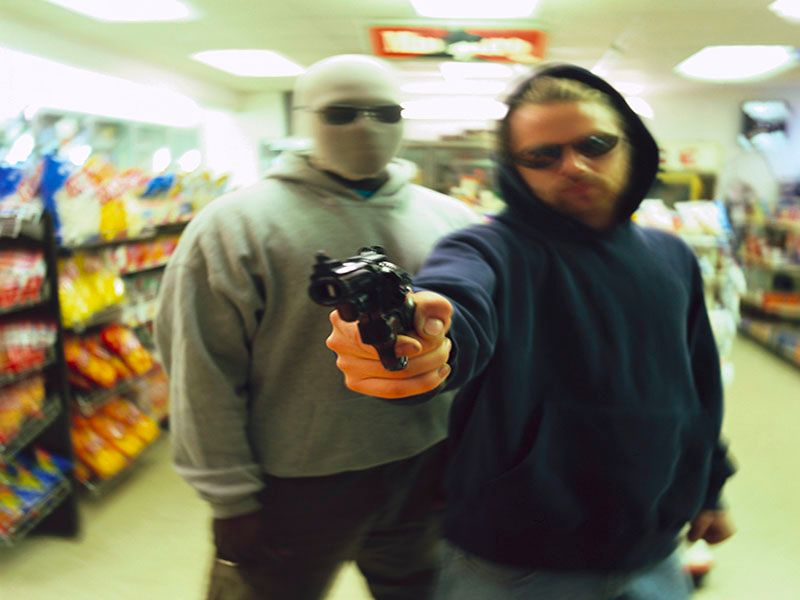TUESDAY, Feb. 16, 2021 (HealthDay News) — After the coronavirus pandemic forced the city of Philadelphia to go into lockdown, gun violence rapidly escalated, a new study finds.
It’s known that many U.S. cities saw a spike in gun violence in 2020, a year marked not only by the pandemic but also widespread protests following the police killing of George Floyd.
In the new study, researchers found that after Philadelphia closed non-essential businesses in March, there was a substantial, sustained increase in gun violence over the following months.
There was no clear decrease, however, once restrictions were partially lifted, nor any obvious acceleration after the Floyd killing.
The findings suggest that COVID-19 shutdowns spurred the surge in violence, possibly by worsening unemployment and distress in Philadelphia’s poorest neighborhoods, the researchers said.
No one is saying those shutdowns shouldn’t have happened, but it is important to be aware that pandemic-containment policies can be followed by spikes in violence, said senior researcher Christopher Morrison.
“There’s no easy fix,” said Morrison, an assistant professor of epidemiology at Columbia University Mailman School of Public Health, in New York City.
The pandemic, and its economic and social fallout, have highlighted many longstanding systemic issues, including inequities in employment, health care and housing.
Similarly, firearm violence has to be addressed systemically, Morrison said.
The findings, published online Feb. 10 as a research letter in the Journal of the American Medical Association, are based on Philadelphia police data.
Over the four years before the COVID-19 shutdowns, the city saw an average of 25 shooting victims per week. That number soared to 46 per week in the 8.5 months after March 16, 2020 (the day Philadelphia closed non-essential businesses).
The nature of the shootings — how often they were gang-related or domestic violence incidents, for instance — is unclear, according to Morrison.
A researcher who was not involved in the study said it’s tough to draw conclusions about the causes of Philadelphia’s surge in violence.
“We haven’t experienced anything like this — a deadly pandemic that greatly disrupts social and economic life — in 100 years,” said Daniel Webster, director of the Johns Hopkins Center for Gun Violence Prevention and Policy, in Baltimore.
“Was the trend a function of increasing unemployment or economic pain that grew over the study period?” Webster said.
Maybe, but he noted that the sudden recession of 2008 — the “most dramatic” economic downturn since the Great Depression — was followed by a reduction in gun violence, not an increase.
Plus, Webster thought it seemed “incongruent” that if COVID-19 shutdowns were fully responsible for such a large increase in gun violence, there would be no change after restrictions were eased.
Webster was not convinced the findings mean that the Floyd killing and its aftermath — “mass protests against police violence, more police violence, the most divisive political environment since the Civil War” — played no part in sustaining gun violence in Philadelphia.
He said high-profile police killings have fueled spikes in community violence elsewhere, including in Baltimore, St. Louis and Chicago in recent years.
And, Webster said, shootings in 2020 rose to a particularly striking degree in both Minneapolis and Louisville, Ky., where Breonna Taylor was fatally shot by police last spring.
According to Morrison, the findings in Philadelphia would not necessarily extend to other U.S. cities, for various reasons, including differences in lockdown policies.
He also agreed the findings do not discount a role for racial justice issues in Philadelphia’s gun violence statistics. The pandemic itself, Morrison noted, has taken a greater toll on people of color, in terms of COVID-19 cases, deaths and the economic fallout.
More information
The American Public Health Association has more on gun violence prevention.
SOURCES: Daniel Webster, ScD, MPH, professor, American health in violence prevention, Bloomberg School of Public Health, Johns Hopkins University, and director, Johns Hopkins Center for Gun Violence Prevention and Policy, Baltimore; Christopher Morrison, PhD, assistant professor, epidemiology, Columbia University Mailman School of Public Health, New York City; Journal of the American Medical Association, Feb. 10, 2021, online
Copyright © 2026 HealthDay. All rights reserved.

